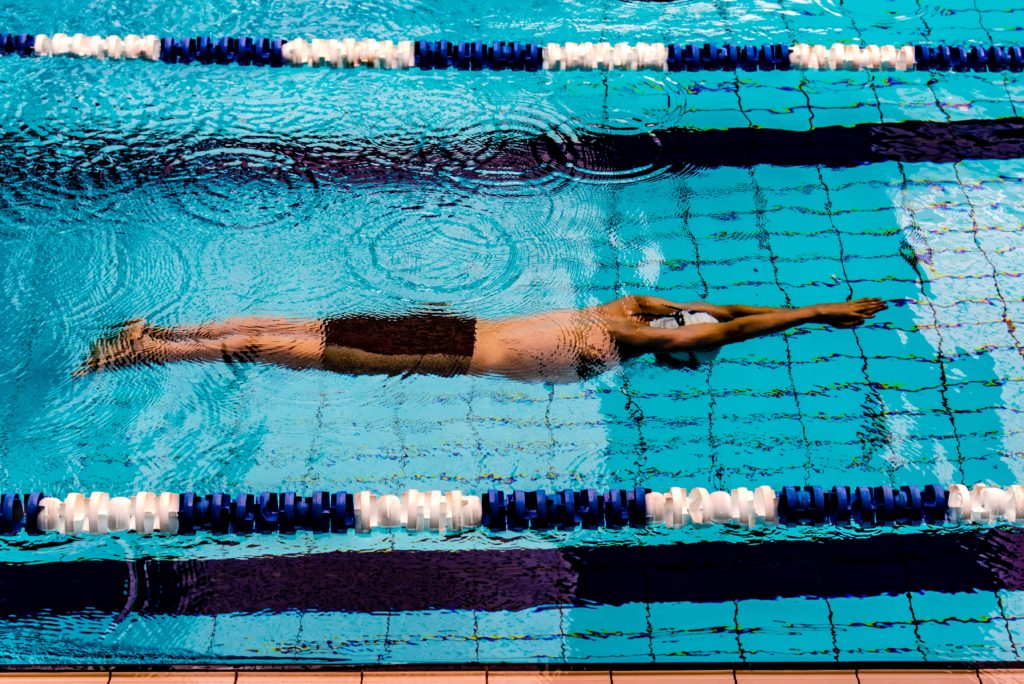
Even though exercising in water takes strain off joints, bad form or overuse can cause damage.
Water is extremely therapeutic for the body, and swimming provides many health benefits, such as weight control, improved muscle tone and strength, enhanced endurance, and cardiovascular fitness. Swimming can also be a great exercise for your shoulders, but take note: excessive swimming, poor body mechanics, and improper technique can aggravate any underlying shoulder issues. Learn the role of the shoulder in swimming and how to enjoy this sport while preventing injury.
The shoulder is a complex and extremely mobile joint, designed to obtain the greatest range of motion with the most freedom of any joint system in the body. Swimming requires the shoulder to perform several complex maneuvers: overhead, reaching, and repetitive movements in both clockwise and counterclockwise directions. Competitive swimmers can perform more than 4,000 strokes per shoulder in a single workout, making them susceptible to shoulder pain, so much so that the term “swimmer’s shoulder” was coined. Even amateur and recreational swimmers can experience shoulder problems due to improper form. Consequently, shoulder pain is a very common musculoskeletal complaint among swimmers.
Risks and Benefits of Swimming
Generally, swimming is very good for the shoulder because it allows muscles to be exercised without excessively loading the joint. It also provides effective aerobic training that won’t stress the hips, knees, and ankles. Many patients suffering from low back pain are advised to swim as a form of rehabilitation and exercise because of its low impact buoyancy.
While it is important to maintain correct biomechanics of the shoulder joint before, during, and after swimming, according to research published in the North American Journal of Sports Physical Therapy, many swimmers will inherently adjust their stroke to avoid painful movement patterns. So if you are tired or have strength or flexibility issues that lead to improper form, swimming can be harmful.
Repetitive shoulder can lead to overuse and trauma to the joints and ligaments that support the shoulder. If you are currently experiencing shoulder pain, you should get schedule an appointment with a physical therapist before performing any new physical activity, including swimming, to prevent permanent damage.
Swimming Best Practices
When beginning a swimming program, follow these best practices to avoid shoulder injury:
- Start slowly and gradually increase the frequency and intensity of your workouts to allow time for your muscles to adapt to your new exercise regimen.
- Always warm up and cool down by stretching your chest and shoulders for approximately five minutes before and after swimming.
- Practice shoulder stabilization exercises to help avoid injury.
- Alter your swimming strokes: perform the backstroke one day, the breaststroke the next, etc. Varying your strokes will lessen repetitive movements and help avoid cumulative trauma.
- Incorporate drills into your routine that focus on kicking, stork technique, and alternating breathing.
If you are experiencing shoulder pain due to swimming, a physical therapist can help you restore normal strength and avoid aggravation of the injury. A physical therapist can not only determine the cause of the problem, but also help you choose the best treatment option. Therapist-administered treatments including manual therapy, stabilization, ultrasound, phonophoresis, iontophoresis, and electrical stimulation can help reduce or eliminate shoulder pain and inflammation and increase flexibility.
If swimming is your exercise of choice but you’re wondering whether the sport is hurting your shoulders, locate one of our 175+ physical therapy clinics and get advice today from our certified sports medicine experts.
